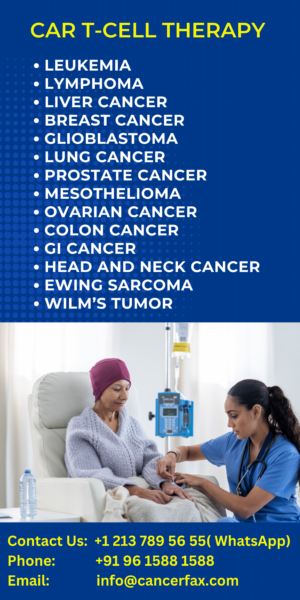Besponsa (Inotuzumab Ozogamicin)
Introduction
Within the domain of medical progress, the pursuit of efficacious cancer therapies has proven to be a challenging yet motivating endeavor. In the context of the current medical environment, Besponsa, often referred to as Inotuzumab Ozogamicin, has emerged as a promising treatment option for those grappling with acute lymphoblastic leukemia (ALL). The narrative encompasses not only scientific advancement but also determination and the unwavering quest to improve patient results.
Understanding Acute Lymphoblastic Leukemia (ALL)
Prior to exploring the significant influence of Besponsa, it is imperative to comprehend the severity of the ailment it addresses. Acute lymphoblastic leukemia (ALL) is a malignancy characterized by the fast progression of cancer in the blood and bone marrow. It predominantly targets lymphocytes, a vital subset of white blood cells that play a critical role in the immune system. This illness predominantly affects the pediatric population, although it can also manifest in adults.
Acute lymphoblastic leukemia (ALL) causes a disturbance in the regular synthesis of leukocytes, resulting in an excessive buildup of immature lymphocytes, which displaces healthy cells in the bone marrow. This phenomenon undermines the body’s capacity to combat infections and transport vital oxygen to tissues, leading to a variety of symptoms encompassing weariness, recurrent infections, as well as susceptibility to bleeding and bruising.
The Challenge of Conventional Treatments
Historically, chemotherapy has been the primary treatment for ALL, utilizing potent medicines to eradicate cancer cells. Although chemotherapy can be efficacious, it frequently entails significant adverse effects owing to its non-specific characteristics, causing injury to both healthy and malignant cells. Furthermore, certain patients may acquire resistance to chemotherapy as time progresses, thereby restricting its long-term effectiveness.
Against this background, the pursuit of more precise and less harmful therapies for ALL gained traction, establishing the foundation for the creation of Besponsa.
The Rise of Besponsa: A Targeted Approach
Besponsa signifies a fundamental change in the management of ALL, providing a focused therapeutic strategy that aims to reduce unintended harm to normal cells. Besponsa is a monoclonal antibody-drug combination, which belongs to a highly advanced category of pharmaceuticals that are specifically engineered to selectively target cancerous cells while minimizing harm to normal organs.
The mechanism of Besponsa is based on its capacity to identify and attach to a particular protein called CD22, which is very prevalent on the surface of leukemia cells in the majority of patients with acute lymphoblastic leukemia (ALL). Upon interaction with CD22, Besponsa facilitates the targeted delivery of a highly effective cytotoxic substance, ozogamicin, to malignant cells, resulting in the induction of cell death while minimizing damage to adjacent healthy tissues.
The implementation of this focused strategy not only improves the effectiveness of therapy but also reduces the negative consequences typically linked to conventional chemotherapy, providing a glimmer of optimism for those contending with the formidable obstacles posed by acute lymphoblastic leukemia (ALL).
The Promise of Clinical Trials
The progression of Besponsa from laboratory experimentation to clinical application was characterized by meticulous scientific investigation and rigorous clinical trials conducted to assess its safety and effectiveness. These trials, carried out in several institutions globally, recruited patients with relapsed or refractory acute lymphoblastic leukemia (ALL), a group with few therapy alternatives and an unfavorable prognosis.
The outcomes of these trials were undeniably revolutionary. The effectiveness of Besponsa in establishing complete remissions was found to be extraordinary, as a substantial number of patients achieved minimal residual disease negativity. This achievement is considered a crucial milestone that is linked to improved long-term results. Furthermore, the positive safety profile of this treatment highlights its promise as a well-tolerated therapeutic alternative for individuals who are unable to endure the adverse effects of traditional chemotherapy.
Realizing the Impact: Transforming Patient Care
The regulatory authorities’ approval of Besponsa marked the beginning of a new era in the treatment of ALL, providing renewed optimism for both patients and healthcare practitioners. The incorporation of this technology into clinical practice has broadened the range of treatment options for ALL, offering a crucial support system for individuals experiencing relapse or resistant disease.
For patients, Besponsa signifies not only a drug, but also the potential for prolonged survival, enhanced quality of life, and the possibility of a cancer-free future. The specific mode of action of this medication not only provides effectiveness but also the possibility of reducing treatment-related adverse effects, enabling patients to regain a sense of normalcy throughout the chaos of disease.
Challenges and Future Directions
Although Besponsa represents a notable progress in the realm of ALL therapy, there are still obstacles that lie ahead. The availability of cutting-edge therapies continues to be a matter of concern, especially in areas with low healthcare resources where financial obstacles may hinder patient access. In addition, current research efforts aim to understand the intricacies of ALL biology, identify new targets for therapy, and improve treatment tactics to achieve better results.
In anticipation of the future, the trajectory of Besponsa stands as a monument to the efficacy of scientific advancement and collective endeavor in addressing the pervasive issue of cancer. As scholars persist in expanding the frontiers of understanding and advancement, the horizon is replete with potentialities, providing optimism to individuals and families contending with the severe ramifications of hematopoietic malignancies.
Conclusion
Besponsa serves as a notable illustration of the profound impact that tailored medicines can have within the field of oncology. The introduction of this technology has not only transformed the approach to treating Acute Lymphoblastic Leukemia (ALL), but has also fostered a feeling of hope and determination in the midst of challenges. As we commemorate the significant achievements in the battle against cancer, let us reassert our dedication to progressing scientific knowledge, promoting cooperation, and guaranteeing that each patient receives the care and empathy they are entitled to. In the field of cancer treatments, Besponsa exemplifies a promising trajectory that is driven by optimism, enriched by groundbreaking advancements, and characterized by an unyielding will to ultimately overcome cancer.
- Comments Closed
- March 30th, 2024









Privacy Overview